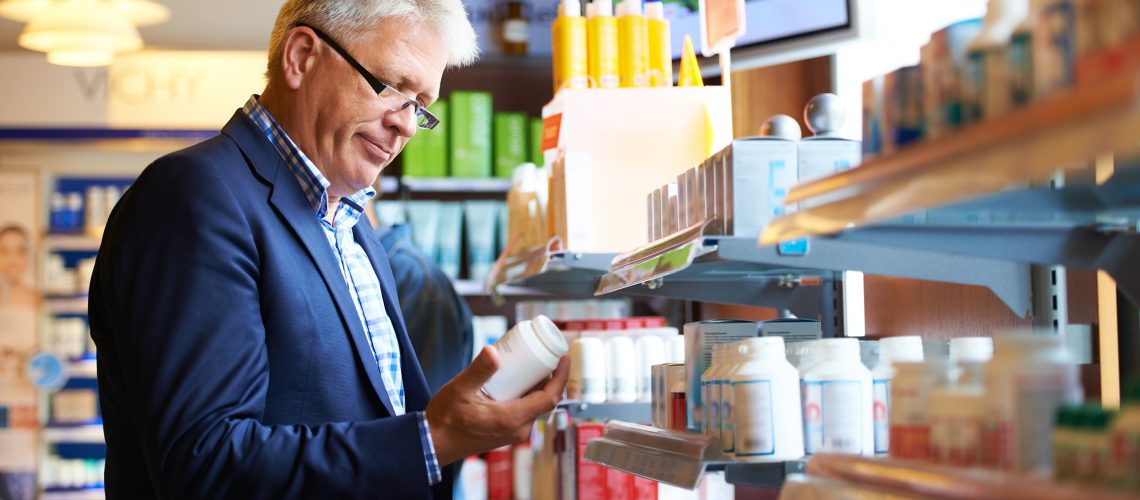Digest This
Click on the topics below to learn how probiotics can improve your digestive health, naturally.

Relying on Heartburn Drugs Too Much?
- @drHoberman
- Drug interactions, Probiotics
You may have experienced a big jolt when you saw the news about the FDA alerting consumers to the presence of a human carcinogen in the over-the-counter (OTC) heartburn drug ranitidine, most commonly known by its brand name, Zantac.
N-nitrosodimethylamine (NDMA) is the very same carcinogen that prompted a recall of some prescription medications containing the generic drug valsartan (used to treat heart failure and high blood pressure).
Although the FDA was quick to say the amounts of NDMA found in ranitidine were barely above what may be found in common foods, that didn’t stop Sandoz/Novartis from halting the distribution of Zantac, pending a deeper investigation.
In the meantime, national drug store chains — Walgreens, Rite Aid and CVS — have removed Zantac and its generic counterparts off their shelves.
A lot of heartburn drugs are sold via the OTC route, including proton pump inhibitors (PPIs) like omeprazole magnesium (Prilosec) and lansoprazole (Prevacid) and H2 blockers like ranitidine and famotidine (Pepcid).
It’s no stretch to say that many of the 15 million Americans who are prescribed these heartburn drugs and the countless numbers of people who take them via the OTC route, do so for far longer than they should, even after their health problem has cleared up.
Even years!
Previously, we’ve warned you that taking PPIs creates unhealthy imbalances in the bacteria in your stomach that can leave you vulnerable to serious Clostridium difficile (C. diff) superbug infections.
Imagine side effects that are far worse…
Death due to heartburn drugs
A recent report featured in The BMJ tracked the mortality rates among more than 200,000 U.S. soldiers who had been newly prescribed either a PPI or H2 blocker drug for a decade.
Overall, long-term use of PPIs was associated with a 17 percent greater risk of death compared to H2 blockers. The uptick in mortality rates among PPI users was attributed to cardiovascular disease, stomach cancer and chronic kidney disease.
Two more factoids that should catch your attention, especially if you take PPIs or other heartburn drugs, either over-the-counter or by prescription:
- More than 80 percent of PPI users were taking low doses of their prescribed drug, about the same as doses offered in OTC versions.
- More than half of the patients were taking a PPI for no medical reason, even though it was prescribed to them.
“Most alarming to me is that serious harm may be experienced by people who are on PPIs but may not need them,” says Dr. Ziyad Al-Aly, senior author of the study and assistant professor at Washington University’s School of Medicine. “Overuse is not devoid of harm.
“For those who have a medical need, PPI use should be limited to the lowest effective dose and shortest duration possible.”
What can you do?
Are you taking heartburn drugs based on your doctor’s advice or doing it on your own?
Have you been taking them longer than two weeks?
Do you schedule breaks between rounds of taking a heartburn drug by at least four months?
If you aren’t able to answer those questions immediately, it’s time to see your doctor for some advice.
In the meantime, here are some steps you can take to ease your heartburn symptoms without taking a drug:
- Cut out smoking for good.
- If you’ve been putting off losing weight, the time is now.
- Leave about two hours between the time you eat an evening meal and the time you go to bed.
- Before hitting the sack, elevate your pillow slightly to avoid a nighttime surge of stomach acid.
- Prevent disruptions in the critical balance of healthy bacteria in your gut — and avoid superbug infections — by taking a probiotic like EndoMune Advanced Probiotic containing 20 billion CFUs and 10 strains of beneficial bacteria.
There Is An Endomune Probiotic For Every Lifestyle
-
EndoMune Metabolic Rescue
$44.95 -
EndoMune Advanced Probiotic
$42.95 -
EndoMune Companion Pack
$112.93









